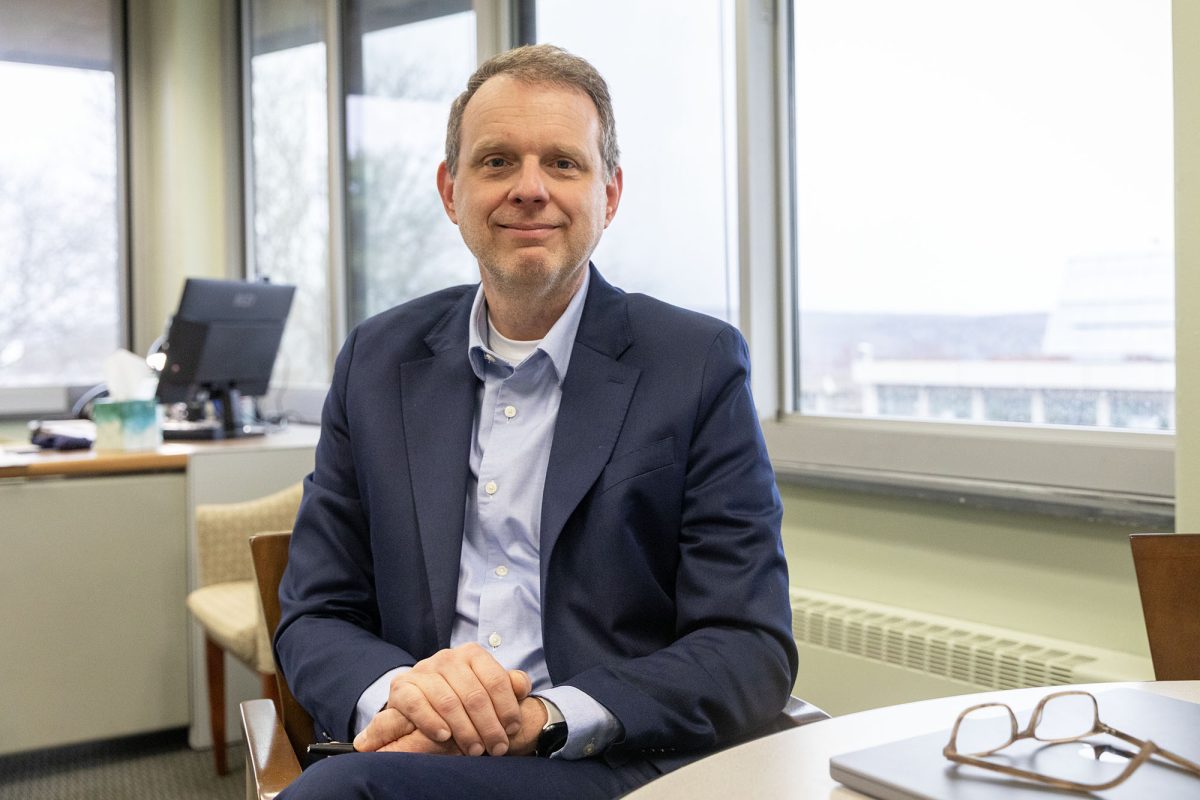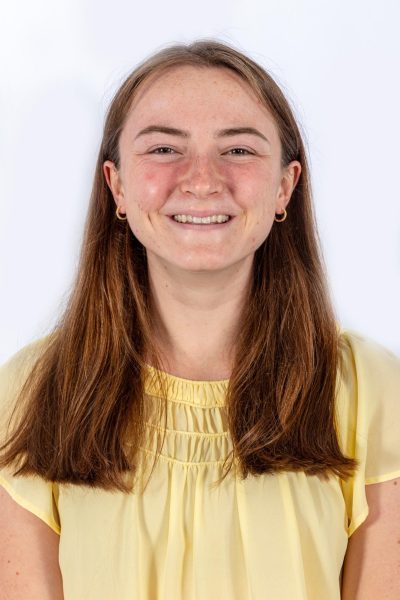Steve TenEyck began serving as the dean of the Ithaca College School of Music, Theatre, and Dance on March 1. TenEyck has worked as a faculty member at the college since 2001. He served as a professor and chair of the Department of Theatre Arts and became an associate dean of the School of MTD when the department merged with the School of Music in 2022. TenEyck and Luis Loubriel, associate dean of the School of MTD, served as co-interim deans of the school while the college searched for a new dean. Melanie Stein, provost and senior vice president for academic affairs, announced that the college selected TenEyck for the new dean in a March 3 email to the campus community.
Community Outreach Manager Kai Lincke spoke with TenEyck about his transition to dean and his goals for the School of MTD.
This interview has been edited for length and clarity.
Kai Lincke: How do you plan to use your past experience to guide your leadership moving forward?
Steve TenEyck: I landed in the role of chair when it was announced that we would be joining with [The Center for] Music, so I was part of the transition team that recommended the formation of the School of Music, Theatre, and Dance. … I know [some] of the reasoning why we recommended becoming one school. I helped in the formation of our school’s governing documents and structures and have relationships across the school based on my various roles and leadership. So, I think all of that … will serve me in this role as dean, as we take the next step in … being a school.
KL: The Ithacan has spoken to some students who said that it feels a little bit like the Center for Theatre and Dance and The Center for Music are still a little bit separate. Do you have any plans to work on unifying the two aspects of the school?
ST: Absolutely. I mean, totally understandable. These units have been around for a long time. … There are traditions in each unit that are deep and strong and really powerful and I think really important. So, there are unique things to these two centers that I think needs to be maintained and nourished. But I would totally agree … that there is more work to do to become one. So there are some places that we do that already, in terms of curriculum. For example … all of our musical theater students, their voice teachers and music teachers are housed in [the Center for Music]. We do an opera every year, we do two musicals. … There’s work we can do … culturally … but there’s also things curricularly. And I think the things that are curricular might take a little more time, because it takes more planning, but that’s absolutely on our agenda.
KL: Do you have any goals for students’ experience in the School of MTD?
ST: These are incredibly strong programs already, so we’re looking to strengthen them. … We have a dedicated career engagement specialist … Katrina Clark, who’s been working actively to meet with faculty to help them … prepare students for transitions. … We’re working on setting up some mentoring programs. We’re going to pilot, hopefully, one next year, so that our [alumni] can connect with our current students. … We have a strong relationship that’s been building this last year with [the School of Health Sciences and Human Performance]. It’s called the Performing Arts Wellness Initiative … and there are both physical walk-in clinics, a hearing clinic and a mental health clinic … that are geared towards the specific sorts of things that students experience in the performing arts, whether it be dancing, or working backstage or playing an instrument. … Once we became a school, we actively engaged with CAPS to do some work with our students on the front end to talk about the particular things they might encounter as performing arts students, whether it’s onstage, offstage, but around anxieties around comparing and perfectionism and all those sort of things that come out when you’re working in these disciplines. … Moving forward, we’re looking to strengthen the advising and really preparing advisers and arming advisers to help their students on the academic front.
KL: Is there anything that you want students to know?
ST: I’m available, so please come speak to me. I would love to have an open door policy. … I believe that students are our why … and in my opinion, faculty and staff are our how. And my job is to support faculty and staff as they support students. And I’m here to support students too. So, my job is to direct resources and to have systems that allow faculty to have the most time they can with students and less time dealing with administration and bureaucracy.
KL: Is there anything you would like to add?
ST: What has kept me here in the 24 years that I’ve been here is the community — the faculty, staff and students. … These units: music, theater and dance, are so embedded in Ithaca College. Our roots are the college’s roots and so I recognize that it’s an honor to be part of that. There was a rich tradition before me, there will be one after me, and I’m honored to be involved in walking alongside faculty, staff and students in this moment.















